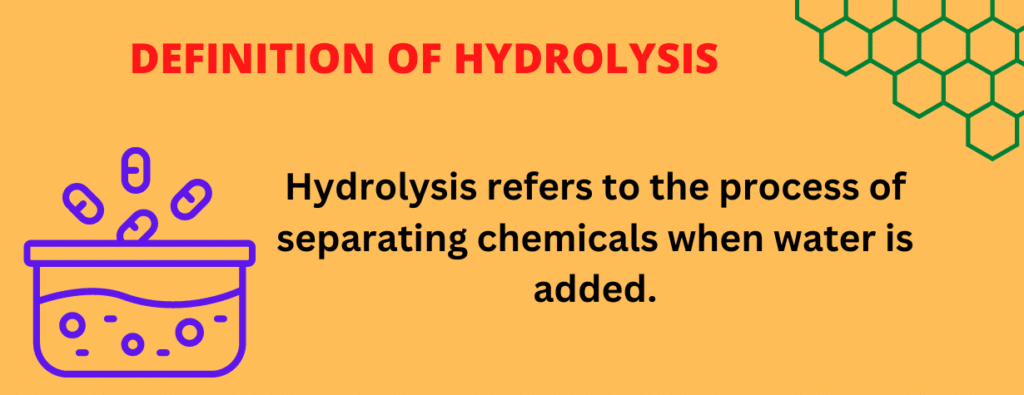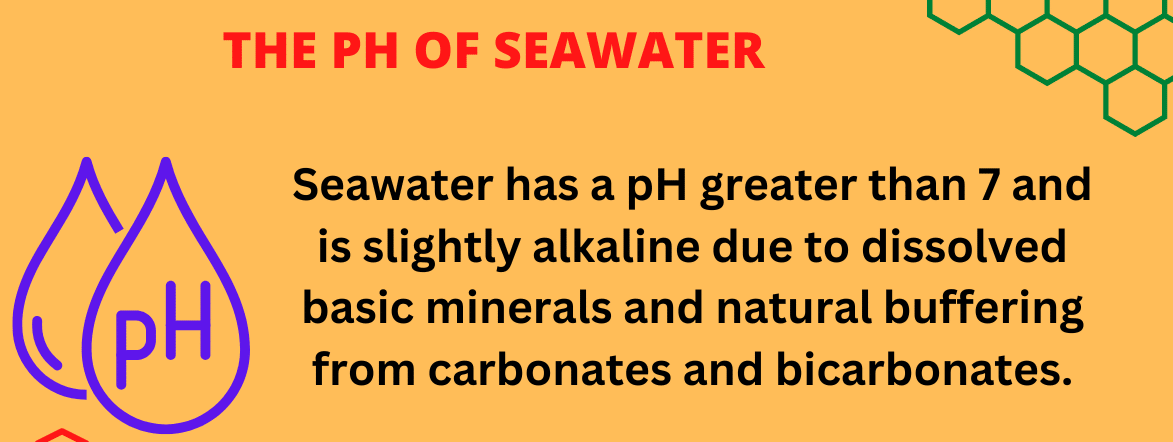The term hydrolysis is derived from the Greek words hydro (water) and lysis (to unbind). In practice, hydrolysis refers to the process of separating chemicals when water is added.
Water molecules are typically attached to two parts of a molecule during hydrolysis. One molecule of a substance will receive the H+ ion, while the other will receive the OH- group. The hydrolysis reaction is primarily used to degrade polymers into monomers.

The reaction of water with another chemical compound results in two or more products. Some examples of hydrolysis include dissolving a salt of a weak acid or base in water or dissolving sulphuric acid in water where hydronium and bisulfate compounds are formed. Hydrolysis also helps in breaking down proteins, fats, and complex carbohydrates in food.
Table of Contents
Hydrolysis in Simple Terms
A chemical reaction in which water breaks down a compound; is accomplished by inserting a water molecule across a covalent bond in the compound. Some uses of hydrolysis reaction are given below:
- In the digestive tract, biological macromolecules are ingested and hydrolyzed to form smaller molecules that can be absorbed by cells and then further broken down to release energy.
- Sugar hydrolysis degrades them by cleaving the glycosidic bonds that hold the monomer units together.
- The cations and anions formed during salt ionisation either exist in aqueous solutions as hydrated ions or interact with water to regenerate the acids and bases. The interaction of salt cations or anions with water is referred to as salt hydrolysis.
Difference between Dehydration and Hydrolysis
Dehydration synthesis reactions generate energy while building molecules, whereas hydrolysis reactions degrade molecules and generate energy. Both reactions form and degrade carbohydrates, proteins, and nucleic acids, although the monomers involved are different in each case.
More Links
| Hydrogen Molar Mass | Hydrogen Bond| Definition & Easy Explanation |
| The Viscosity of Water| Definition of Viscosity | Hydrogen oxide-An Overview |
| Kinematic Viscosity of Water | Is Hydrogen a Metal? |
- BCl3 Lewis Structure in four simple steps - November 1, 2023
- PH3 Lewis Structure in four simple steps - October 8, 2023
- PF3 Lewis structure in four simple steps - September 24, 2023



